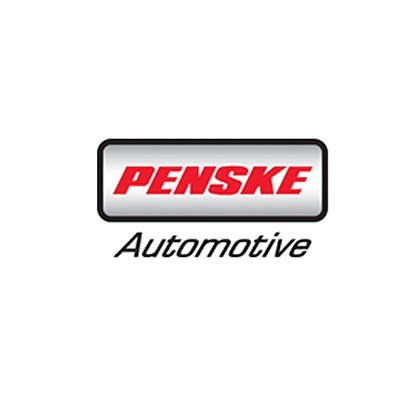Penske Automotive Group Cash On Cheap Euro And Commercial Vehicles Penske Automotive Group Inc
Post on: 14 Апрель, 2015 No Comment

Summary
- Crashing oil prices, tempting margins and robust US economy offer great conditions for entry into the commercial vehicle market.
- Cheap Euro as a tailwind for future volumes and profitability; The UK and European automotive markets are rallying while offering attractive M&A valuations.
- Detailed breakdown of the company’s financial statements and forecasts; conservative valuation model suggests 25% upside potential.
- Relative valuation and risk assessment.
Overview:
Penske Automotive Group (NYSE:PAG ) is an international transportation services company operating automotive and commercial vehicle dealerships, principally in the United States and the United Kingdom (61% and 35% of the 2014 revenue, respectively). The vast majority of company’s top line is generated through retail of new and used vehicle (52% and 30% of the 2014 income, respectively). Penske’s brand portfolio is heavily skewed towards the European luxury products, including BMW/Mini, Audi, Mercedes-Benz and Porsche. The automobiles are sold and serviced in distinctive premium facilities, located in attractive geographic markets and aggregated in campus settings, where advantageous.
When it comes to Penske’s gross profit breakdown, however, a leading source is the Service & Parts business. It accounts for 41% of the earnings and generates its sales in relation with warranty and non-warranty work performed at each of the company’s dealerships. The business benefits from the increasingly complex technology used in the latest vehicles, that makes it difficult for independent vendors to maintain and repair today’s cars.

The third crucial component of the company’s gross margin mixture is the Finance, Extended Service and Insurance sales that facilitates the underlying operations. A standard practice among the automotive retailers is to offer and arrange third-party financing, in relation to customers’ purchases. In return, the dealership adds several basis points to the buy rate the lender is offering. The practice significantly improves retailers’ bottom-line, but is also under the scrutiny of CFPB right now. The extended service contracts and other products offered are also underwritten by independent third parties, mitigating the risks and exposures of Penske Automotive.
Where the company is and where it goes
As a leading distributor of European luxury cars across the US and UK, Penske Automotive is a company with excellent odds to cash on the declining Euro. Over the past 12 months, the European currency depreciated more than 20% against the US Dollar and also weakened in regards to the Japanese Yen, giving German, French and Italian manufacturers a great advantage against their international rivals. Considering the quantitative easing programme and continuing political turbulence, the Euro is likely to remain relatively cheap for an extended period of time. How does this translate into Penske’s income statement? Higher volumes and potential for gross margin improvement. While EURUSD depreciation will inevitably drag down the revenue on per unit basis in absolute Dollar terms, the declining prices will not only attract the premium car clientele, but also customers migrating from lower price brackets. In addition, the recent introduction of numerous exciting products from the leading manufacturers guarantees high interest from existing and prospective premium car owners.
Focusing on the UK, the car market is going from strength to strength, experiencing the longest ever period of growth. According to the Society of Motor Manufacturers and Traders, the new car market grew by 12% in February alone, recording 36th consecutive month of growth. The only effect that could slightly mute the positive trend is the weakening of the British Pound against the Dollar, resulting in a lower absolute profit for Penske. The issue, however, has been addressed during the company’s latest conference call, where the Chairman and CEO of the company assured that the earnings from the UK business won’t be brought to the US due to unfavourable taxation and exchange rates. Instead, the management indicated interest in M&A activities across Europe and the UK, limiting its focus on the automotive side of the business. Despite the fact the UK and European markets are flourishing, there are plenty of opportunities for acquiring top quality businesses paying little to no goodwill.
Source: Society of Motor Manufacturers and Traders
A tiny portion of the company’s revenues are generated from commercial vehicles, diesel and gas engines, power systems and related parts and services across Australia and New Zealand. Currently, these operations are more of a burden rather than a real asset due to significant restructuring costs and smaller profits margins and distressed volumes caused by sluggish Australian economy dragged by decline in the commodity prices. There is, however, a bright spot in the tunnel. First, there is a considerable commercial vehicles potential in Australia as the average fleet age of the heavy duty trucks is 14 years compared to 6 in North America. Since 2013, Penske Automotive has been the exclusive importer and distributor of the Western Star, MAN and the VW Group brands. To strengthen its positions, PAG recently acquired MTU Detroit Diesel Australia, which is a leading distributor of diesel and gas engines. Therefore, in case of favourable market conditions the business could easily turn into a prime value drive for company’s shareholders.
In terms of future expansion and growth, however, management’s prime objective is to tap into the retail commercial vehicle market in the US, capitalizing on the cheap oil and booming economy. The company is planning to spend 50% of the 2015 M&A budget on US commercial vehicle dealerships acquisitions. The decision is backed by the relatively low valuation of these businesses (goodwill paid is 25-35% less, compared to premium automotive dealerships); lower rental and capital expenditure expenses, and company’s robust infrastructure and relationships with manufacturers. Indeed, the commercial vehicle business is gaining momentum while offering noticeably higher margins. The low oil prices resulted in substantial cash flow towards the trucking industry. They, on another hand, increased their capital spending, shifting from replacement to additive mode. As a sign of the company’s determination and factor guaranteeing the successive execution of the strategy, PAG recently hired Richard Shearing. who is a former Vice President of Daimler Trucks North America.
Focusing on the executive team, the majority of the senior members in charge have been with the company for the past 10-15 years, turning Penske Automotive from a small vendor to an international market leader. Over the years, the executive style has been very resilient and growth-orientated, resulting in numerous acquisitions and disposals of businesses that are not profitable anymore. A significant portion of the directors and vice presidents are holding a significant amount of their personal wealth in Penske equity, assuring strong alignment between their incentives and interests and that of shareholders. Looking at the recent insider transactions, another positive trend is the management is consistently building up their equity stake, suggesting a positive outlook and cheap valuation.
Peer comparison and relative valuation
The automotive industry is highly fragmented and competitive, with no mean of differentiation and customers extremely sensitive to price differences. Although significant consolidation has already taken place, more than 90% of the US industry’s market share remains in the hands of smaller regional and independent players. The picture is similar across Europe and the UK. With the advancement of technology, new, low-margin competitors are entering the market, putting additional pressure on the traditional dealerships and rising the level of price transparency. Having said that, Penske’s prime edges are the company’s economy of scale, strong ties with manufacturers, business diversification, established market position and existing clientele base. The following table compares some of PAG’s key statistics to the company’s traditional rivals:














